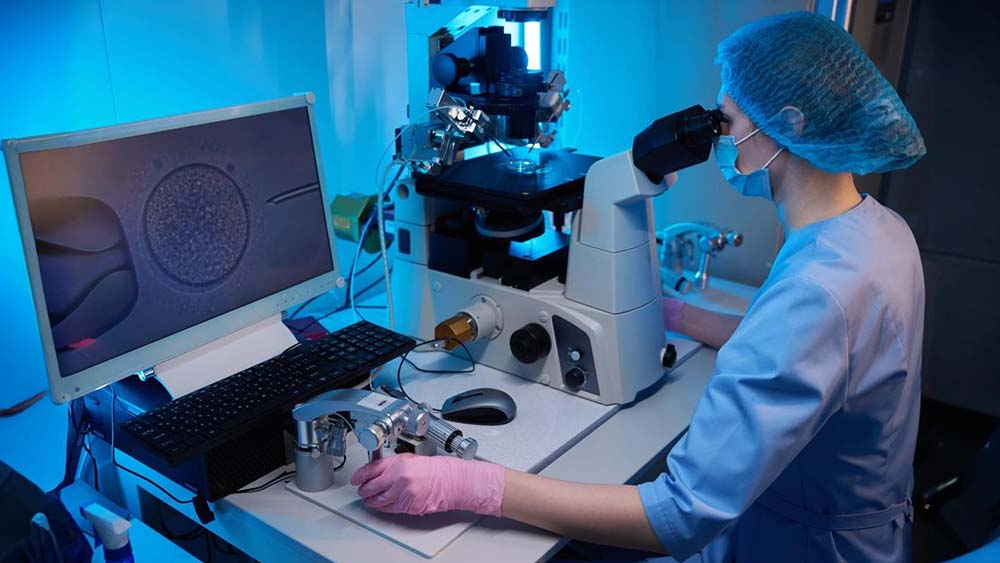Do you know AI models can predict clinical pregnancy with a median accuracy of 77.8% compared to 64% for embryologists?
IVF, or In-vitro Fertilization, has transformed reproductive medicine, providing hope for couples experiencing infertility. To experience this transformation, one should check the best IVF treatment in Kolkata. Over the past few years, advancements in medical technology have significantly improved IVF success rates.
One of the most prominent developments in recent times is the integration of AI (Artificial Intelligence) into IVF treatments. This blog dives deep into the role of AI in In-vitro Fertilization and embryo selection, its benefits, challenges and the future of clinical pregnancy.
The IVF Journey
Before exploring AI’s impact on the IVF procedure, it is essential to comprehend the basic principles revolving around the concept of In-vitro Fertilization. IVF or in vitro Fertilization is a clinical procedure which involves the fertilization of an egg and sperm outside the body in a laboratory setting.
The fertilized embryo is then transferred back into the uterus of the woman to establish a pregnancy. While this procedure offers hope to many, it is not always a straightforward procedure. The outcome of the process is influenced by various factors and the success rates may vary from person to person. So, it is extremely vital to consult a doctor for IVF treatment in Kolkata.
AI’s Role in IVF
- Predictive Analysis: AI algorithms can assess a huge amount of patient data which includes hormone levels, medical records and genetic information. By assessing these data, AI can easily predict the success rate for an IVF cycle. This assists doctors for IVF treatment in Kolkata tailor treatments more efficiently increasing the chances of a successful pregnancy.
- Embryo Selection: AI plays a significant role in embryo selection. Traditionally, embryologists used to manually analyze embryos for their viability. AI-powered systems, on the other hand, can assess thousands of images of embryos while identifying the ones with the highest rate of successful implantation. This improves embryo selection accuracy. By the same assessment, it can also predict the genetic score of an embryo.
- Hormone Monitoring: One of the most vital factors in IVF is the hormone level. AI tools can easily monitor hormone fluctuations in real-time which allows doctors of IVF treatment in Kolkata to adjust the dosages of medication promptly. This precise control helps in the enhancement of successful egg retrieval and embryo development chances.
What are the Benefits?
- Enhanced Success Rates: AI’s ability to assess complex data assists in the improvement of successful IVF cycle chances while reducing the number of unsuccessful attempts.
- Tailored Treatment Plans: Artificial Intelligence can assist the doctors of IVF treatment in Kolkata to tailor plans which suit the patient’s unique requirements and enhance the success rate while minimizing side effects.
- Cost Reduction: IVF processes driven by AI often result in fewer cycles which reduces the overall treatment costs.
- Time Efficiency: AI efficiently streamlines the IVF procedure which reduces waiting times while minimising the emotional toll on the patient.
Ethical Considerations and Challenges
- Data Privacy: Handling sensitive medical information requires robust security measures to protect the privacy of patients.
- Algorithm Bias: There are instances when it is observed that the AI algorithm is biased which potentially affect treatment recommendations and outcomes. Therefore, ensuring fairness in AI is crucial.
- Ethical Dilemmas: This increasing role of Artificial Intelligence in assisted reproduction or clinical pregnancy raises ethical concerns such as who needs to have access to this technology and the potential for designer babies.
Conclusion
From this above discussion, it can be concluded that AI has revolutionized the field of IVF as it offers hope to countless couples struggling with infertility and the best facility of IVF treatment in Kolkata is aware of this fact. This is because AI increases the success rate for a successful clinical pregnancy while minimizing costs and emotional stress.
However, it comes with challenges related to data privacy, ethical considerations and algorithm bias. As a society, we must strike a balance between the benefits and ethical concerns of AI in IVF.





